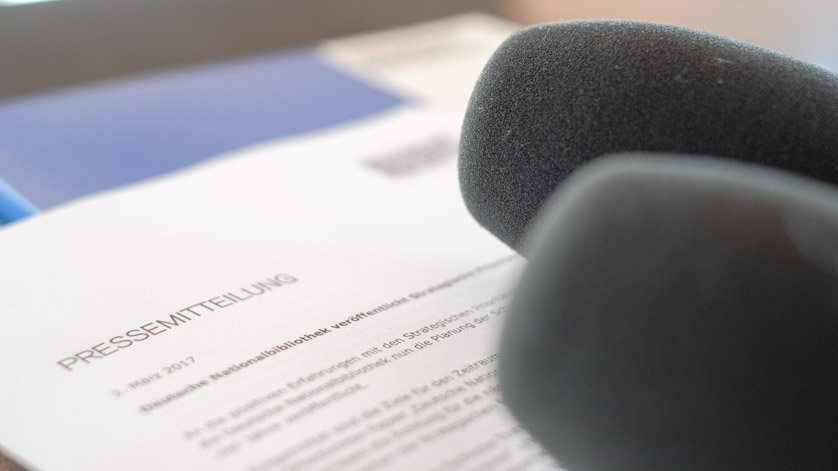Europeana Sounds: a gateway to Europe’s sound and music heritage

Press release: 11.6.2014
Europeana Sounds was launched on 1 February 2014. This three-year project, co-funded by the European Commission, will give online access to a large number of audio files from January 2017. Over 540,000 high quality sound recordings will be available via the Europeana portal - from classical and folk music, to environmental sounds from the natural world as well as oral memories.
The project, coordinated by The British Library, is a partnership among 24 national libraries, sound institutions, research centres, and universities from 12 European countries.
The sound recordings selected for this project embrace the full breadth of Europe’s cultural heritage: classical music and contemporary performances of timeless and universal appeal; traditional and folk music and storytelling; sound effects, environmental sounds and noises from the natural world; languages, accents and dialects and oral recollections. Together these collections reflect the diverse cultures, histories, languages and creativity of the peoples of Europe over the past 130 years.
Europeana Sounds is a truly groundbreaking initiative. For the first time world-leading heritage institutions with outstanding audio collections are joining forces to offer improved access to materials and to share their expertise and skills. Through TV, radio, the Internet and cinema, audiovisual materials today make up the soundtrack to our daily lives, and have done for decades - but represent a group of works which are often overlooked when it comes to the preservation of our cultural heritage.
Europeana Sounds will significantly improve access to a wealth of Europe’s materials and show how sound recordings have woven their way into the social, cultural and scientific fabric of our time. From long forgotten dialects, through the sounds of disappearing natural environments, to contemporary music, Europeana Sounds will bring us all closer to our recent past and present, united by a common aural heritage. Much of this heritage was born within the age of copyright, and preserving it for future generations is part of the overall objective of broadening access to copyrighted materials. These sounds are the latest testimonials of our shared cultural experience, and the challenge will be to preserve access to it for a wide audience in an increasingly digital age.
For Bruno Racine, President of the Bibliothèque nationale de France and Chairman of the Europeana Foundation, “Europeana Sounds’ true value is to focus on a key medium which surprisingly enough is either overlooked or on the contrary considered as too complex to handle.”
Roly Keating, Chief Executive of the British Library, said: “We’re looking forward to working with other European archives and libraries over the next 3 years to bring together a much-needed ‘virtual jukebox’ of sounds from across the continent for anyone to access online. The British Library alone has 5 million sound recordings in its collections, covering the entire range of recorded sound from music, drama and literature, to oral history and natural sounds.”
Elisabeth Niggemann, Director General of the German National Library, underlines the fact that: “The German National Library is contributing to Europeana Sounds via the German Music Archive. Its aim in this project is to improve digital access to the sound recordings and sheet music of the German Music Archive via the international Europeana portal. European licensing models will need to be created here in order to present copyright-protected works.”
Europeana Sounds - Partners:
- The British Library – UK
- Stichting Nederlands Instituut Voor Beeld en Geluid – NL
- Stichting Nederland Kennisland – NL
- Stichting Europeana – NL
- National Technical University of Athens – EL
- Bibliotheque nationale de France – FR
- AIT Austrian Institute of Technology Gmbh – AT
- Net7 Srl – IT
- We Are What We Do Community Interest Company – UK
- Centre National de la Recherche Scientifique – FR
- UAB DIZI – LT
- Deutsche Nationalbibliothek – DE
- Music Library of Greece – EL
- Istituto Centrale per il Catalogo Unico delle Biblioteche – IT
- Irish Traditional Music Archive – IE
- Max Planck Gesellschaft Zur Foerderung der Wissenschaften E.V. – NL
- National Library of Latvia – LV
- Österreichische Mediathek – AT
- Rundfunk Berlin-Brandenburg – DE
- Sabhal Mor Ostaig – UK
- Statsbiblioteket – DK
- Oesterreichische Nationalbibliothek – AT
- Faculdade de Ciencias Sociais e Humanas da Universidade Nova de Lisboa – PT
- Comhaltas Ceoltoiri Eireann – IE
Europeana Sounds is co-funded by the European Commission under the CIP ICT-Policy Support Programme. Follow @EU_Sounds & on Facebook
About the German Music Archive
The German Music Archive of the German National Library is the central collection point for sheet music and sound carriers in Germany and is the nation's music bibliography information centre. Sheet music and sound recordings issued by German publishers and labels form the basis of the collection.
In doing so the German Music Archive is helping to fulfil the German National Library's mandate to collect, document and archive the cultural and scientific heritage of Germany in the form of text, image or sound-based publications for use by the general public both now and in the future.
The German Music Archive is housed at the Leipzig site of the German National Library. As part of the construction work on the fourth annex building (completed in 2010) the Archive was equipped with new work areas and stacks, a new music reading room, a listening booth including surround-sound system, and a state-of-the-art recording studio complex.
About Europeana
Europeana is a multilingual collection of digitised objects from European museums, libraries, archives and audiovisual collections. Currently Europeana gives integrated access to 30 million books, films, paintings, museum objects and archival documents from some 2200 content providers from across Europe. The content is drawn from every EU member state and the interface of the portal is in 29 European languages. Europeana receives its main funding from the European Commission.
Links to Europeana and Europeana Sounds on Facebook
Europeana Sounds auf Facebook
Europeana
Contact person
direktion-leipzig@dnb.de
Contact: s.jockel@dnb.de

